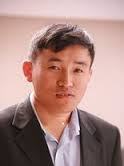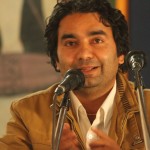
In 2015, the global community of applied linguists lost one of the founding fathers and major theorists in Applied Linguistics/ELT, Professor Alan Davies. Since the inception of the field in 1957, Professor Davies continually contributed to various dimensions of Applied Linguistics such as language testing, language policy, English language teaching, sociolinguistics and second language learning through teaching, research, publications, seminars, and community service. He was a Professor Emeritus Professor Emeritus of Applied Linguistics at the University of Edinburgh, UK (You can listen to his recent interview here).
However, many of us may not know that Professor Davies contributed to teaching, discourse, and policy regarding ELT and Applied Linguistics in Nepal. In the context of the sad demise of Professor Davies (in September 2015), I would like to dedicate this blog post to his legacy and share some of his major contributions to Nepali ELT and Applied Linguistics.
Known best for his theory of “native speaker” (see Davies, 2004, 2007, 2013) and principles/theories/ethics in language testing (e.g., Davies, 1997, 2003, 2008), Professor Davies have contributed to the inception, development and globalization of Nepali ELT/Applied Linguistics by discussing Nepal’s case in most of his popular publications that deal with language policy and politics, English language teaching, and local-global tensions.
Introduction of Applied Linguistics/ELT in Nepal
Many of us may not know that Professor Davies was Head of Central Department of English at Tribhuvan University. In 1969, with British Council’s support, Professor Davies joined the Central Department of English as Head. In his two-year stay, he introduced and taught linguistics and applied linguistics courses for MA students. The courses were deigned to train college teachers on how to teach English effectively. Reflecting on the courses, K. P. Malla, one of the reverent linguists in Nepal, says “Personally for me and many of my colleagues it was the first exposure to linguistics, particularly to Applied Linguistics” (Malla, 1976, p. 8).
He was Chair of the Board of English Studies in 1971. He reformed the existing English language syllabuses and introduced General English course for both the Intermediate and Bachelor levels in 1971. The new syllabus which Malla (1976) calls ‘Davies syllabus’ provided students with an exposure of contemporary spoken and written English and recognized the use of local English by including local newspaper reports and excerpts in the course.
In the early 1970s, Professor Davies, in collaboration with British Council developed in-service training courses for secondary school teachers. The courses focused on both English language development and teaching methods. Most importantly, a new school level English syllabus was developed. He also designed an experimental English language test items for School Leaving Certificates exams. He was the first keynote speaker for Nepal English Language Teachers’ Association [NELTA] in 1993. The NELTA conference was the first event that gathered teachers for academic discussions in ELT in Nepal.
The ELT Survey: Insights into ELT policy reforms
In 1983, when the public education was not yet well planned, Professor Davies was requested by the Ministry of Education and British Council to lead a team of experts to carry out an ELT Survey of Nepal. Two other British scholars, Alan McLean and Eric Glendenning, and three Nepali counterparts, Arun Pradhan, Niraj Kumari Bajracharya, and Jai Raj Awasthi, were involved in the project. The survey team was asked to: (a) observe and describe the status of English language teaching in schools; (b) analyze aim, content, format and the process of textbook development and other reference materials; (d) describe the English language examination system and its connection with ELT practices in schools; (f) assess English language proficiency of both teachers and students and analyze factors contributing to good and poor performance; (h) explore English language teaching methods; and (i) provide recommendations for policy reforms.
The major findings of the study are: a) the level of teachers’’ pedagogical expertise was not adequate due to lack of training and transfer of training into classes; b) the textbooks were appropriate and adequate for the local situation; however, they were not used effectively for the classroom purpose and needed editing and proof-reading; c) the SLC exams did not test students’ English language skills but they meant to test students’ memory of the content knowledge; d) the English language proficiency of both teachers and students was inadequate to fulfill the course objectives; e) the non-communicative techniques such as grammar-translation, rote-learning, choral repetition, gap-filling, and lectures were major techniques of teaching English; and f) the in-service teacher training provisions were not adequate to help teachers teach English effectively. Due to space limitation, I cannot discuss all the findings and issues identified by the survey team. However, I would like to highlight some major policy recommendations, which I think are still relevant to English language education policy reforms in Nepal.
First, the survey team clearly points out that there is no optimal age for learning a second/foreign language. Studies in second language learning show that adults can learn as good second or foreign language as, indeed better than, young children. Building on this research base and considering the low status of English, the survey team recommends to start English late—at Grade 8. Doing so, as the survey team recommends, helps the Ministry of Education invest more resources into three years of teaching English. Until 2003, English was taught from Grade 4. This means that the resources were spread over 7 years (Grade 4-10) in teaching English for school education. Most importantly, the survey team claims that “as much English is learned in 7 years by Grade 10 would be learned in 3 years (see Davies, Glendenning, & McLean, 1984, p. 6).
The survey findings show that starting English at Grade 4 resulted in students’ “repeated failure and loss of motivation to learn [English]. It also leads to a drain on English for school resources” (Davies et al., p. 6). The survey team contends that “extending the period of language learning may sound superficially sensible but in circumstances where so much of the teachers’ own English (and their teaching of English) is poor the problem would be compounded by three more years repeated failure” (Davies et al., 1984, p. 6). The survey team has clearly mentioned that lowering age for learning ESL/EFL is not a good idea to help all children achieve a better education.
English and nationalism
Professor Davies critically examines the space of English in education in the face of strong linguistic nationalism. When he was actively involved in research and teaching in Nepal, the national education policies and practices were guided Nepali-only policy for the nation-building purpose. The teaching and learning of language other than Nepali was discouraged. However, English was still taught and used as a medium of instruction in a British ‘aided’ public school and a Jesuit school. Moreover, rich families sent their children to different parts of India for English education.
While Nepali medium policy was promoted by the state in the guise of nationalism, English medium education was still available for high-middle class elites. Professor Davies is critical about the social divide implicated in the contemporary Nepali-English divide (see Davies, 1970, Davies et al., 1984). Critically analyzing the data that show a huge gap in English language of students and teachers from a British ‘aided’ English medium school in Kathmandu and the public schools outside Kathmandu (see Davies et al., 1984), Professor Davies contends that aid agencies should pay attention to what works best for the majority, especially for the poor, not just for the benefit of a few elites. To address this issue, Professor Davies have suggested that it is better to provide school level education in Nepali, a common national language, and focus on teaching English as a ‘specialist subject’ from the intermediate level.
However, the recommendations of the survey team did not receive any attention in educational policies. The English craze never went away. Professor Davies reflects on the ELT survey data in his 2009 paper in which he strongly argues that Nepal’s English language policy is not shaped by educational motive, but by political motive. In other words, learning English does not actually mean to develop English language proficiency, not even to participate in the process of learning it in many contexts. As Professor Davies argues, lowering the age for teaching English in Nepal is highly shaped by the symbolic value (social prestige) attached to English due to the Nepali-English divide in education for the sake of nationalism.
Professor Davies’ contributions are informed by his critical awareness of Nepal’s contemporary sociolinguistic and sociopolitical situations. He consistently argues that ELT policy in Nepal should be grounded on second language research and focused on what is appropriate for all children.
Conclusion
Professor Davies’ contributions to Nepal are very special and his ideas provide significant insights into creation of an educationally-grounded, locally appropriate, and equitable ELT policy. In the context that English is already taught from Grade 1 and gradually becoming a de facto medium of instruction in public schools, Professor Davies’ contributions make even more sense. His contributions do not just tell the history of Nepal’s ELT, but suggest what the present and the future of Nepali ELT should be. While we are rushing to introduce English from the early grades, Professor Davies’ studies remind us to critically think about the following questions:
- Are the current policies and practices based on any educational research? What second language research studies inform them?
- Why is there a huge gap between the policy (desired expectations) and on-the-ground practices?
- What happens if we start teaching English after students develop strong literacy and academic skills in their first language, Nepali or bilingualism?
- Who benefit from and who are represented in the current policy?
- Do in-service English language teacher training programs actually help to improve the early English policy?
- If studies on second language learning show no significant role of age in learning a second or a foreign language, why should we rush to introduce English from the early grades?
- Does the current English medium of instruction policy in the early grades support students to achieve the national and curricular goals of each subject (e.g. Science, Social Studies, Mathematics) as specified by the government? Does this policy promote interactive and critical pedagogies?
These questions do not have definitive answers; however, they are important to consider in creation, implementation, and evaluation of ELT policy. Answering these questions require us to engage in the exploration of the locally-situated ELT issues and academically grounded debates that focus on both theories and pedagogies of equitable ELT policy. Teacher development, material writing, assessment, and classroom pedagogies all should have an educational base. Our engagement to answer above questions actually pays a true tribute to Professor Alan Davies from the community of Nepali ELT practitioners and applied linguists.
The author: Prem Phyak is currently a PhD candidate at department of second language studies, University of Hawaii in the USA.
References
Davies, A. (1970). The pedigree of nations. Ramjham, 6(3), 26-33.
Davies, A. (1997). Introduction: The limits of ethics in language testing.Language Testing, 14(3), 235-241.
Davies, A. (2003). Three heresies of language testing research. Language Testing, 20(4), 355-368.
Davies, A. (2004). The native speaker in applied linguistics. In A. Davies, & C. Elder (eds.), The handbook of applied linguistics (pp.431-450). Malden, MA: Blackwell Publishing.
Davies, A. (2007). An introduction to applied linguistics: From practice to theory. Edinburgh: Edinburgh University Press.
Davies, A. (2008). Assessing academic English: Testing English proficiency 1950-89—The IELTSsolution. Cambridge: Cambridge University Press.
Davies, A. (2009). Professional advice vs political imperatives. In J. C. Alderson (Ed.), The Politicsof language education: Individuals and institutions (pp. 45–63). Bristol: Multilingual Matters.
Davies, A. (2013). Native speakers and native users: Loss and gain. Cambridge: Cambridge \ University Press.
Davies, A., Glendenning, E., & McLean, A. (1984). Survey of English language teaching in Nepal. Report presented to the His Majesty’s Government Ministry of Education and Culture,Kathmandu.
Malla, K. P. (1976). English language teaching in Tribhuvan University. Vasudha,16 (1), 1-19.
